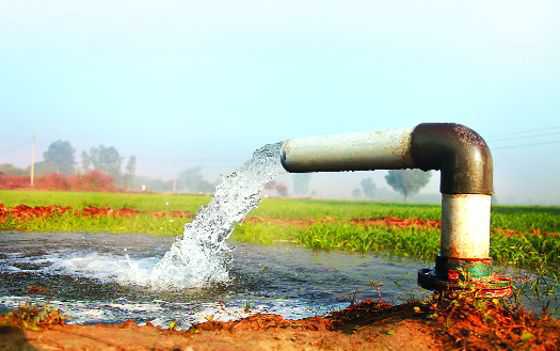
Amid concern over the state of water resources in Punjab, which has seen rapid depletion in groundwater level and its contamination, mostly because of bountiful agricultural production involving the cultivation of a water-intensive crop like paddy and the use of HYV seeds and chemical fertilisers, comes the revelation that the state has not been able to measure up in so far as conservation of this natural resource is concerned. The state stands indicted by the Comptroller and Auditor General of India (CAG) that has pointed out that Punjab failed to take steps as recommended by the Central Ground Water Board (CGWB) to check the receding level of groundwater. The CGWB master plan identified Punjab as a state where groundwater extraction was among the highest in the country. It was suggested that Punjab should construct 4.55 lakh groundwater recharge structures that included 80,000 shafts, rooftops of three lakh houses, besides 75,000 government and institutional buildings, but only 103 such structures have been put in place. Fed by perennial rivers, besides an elaborate canal system that helps it withstand the vagaries of rainfall, the state did not have reasons to worry till the overexploitation of water resources — aided by policies that encouraged profligacy — started resulting in problems. A welfare state pursuing populist policies, with emphasis on managing supply, rendered the scarcity value of water ineffective.
In rural and semi-urban areas, groundwater is a major source for irrigation and drinking. But the situation gets compounded because the quality and level is not even across the state. While the south-west parts of Punjab have shallow water level, as also the presence of fluoride and nitrate, water level is deepest in central and north-east parts of the state. Constructing structures involves expenditure and the state and Centre should be clear about their liability.
Prudent measures are required to arrest the slide and the need is to conserve what is there and build on it. This will need a relook at the present agricultural and water policies, involving subsidy, which discourage thrift. Subsidy should be restricted to the genuinely needy, which again will require tremendous political will.
Join Whatsapp Channel of The Tribune for latest updates.



























